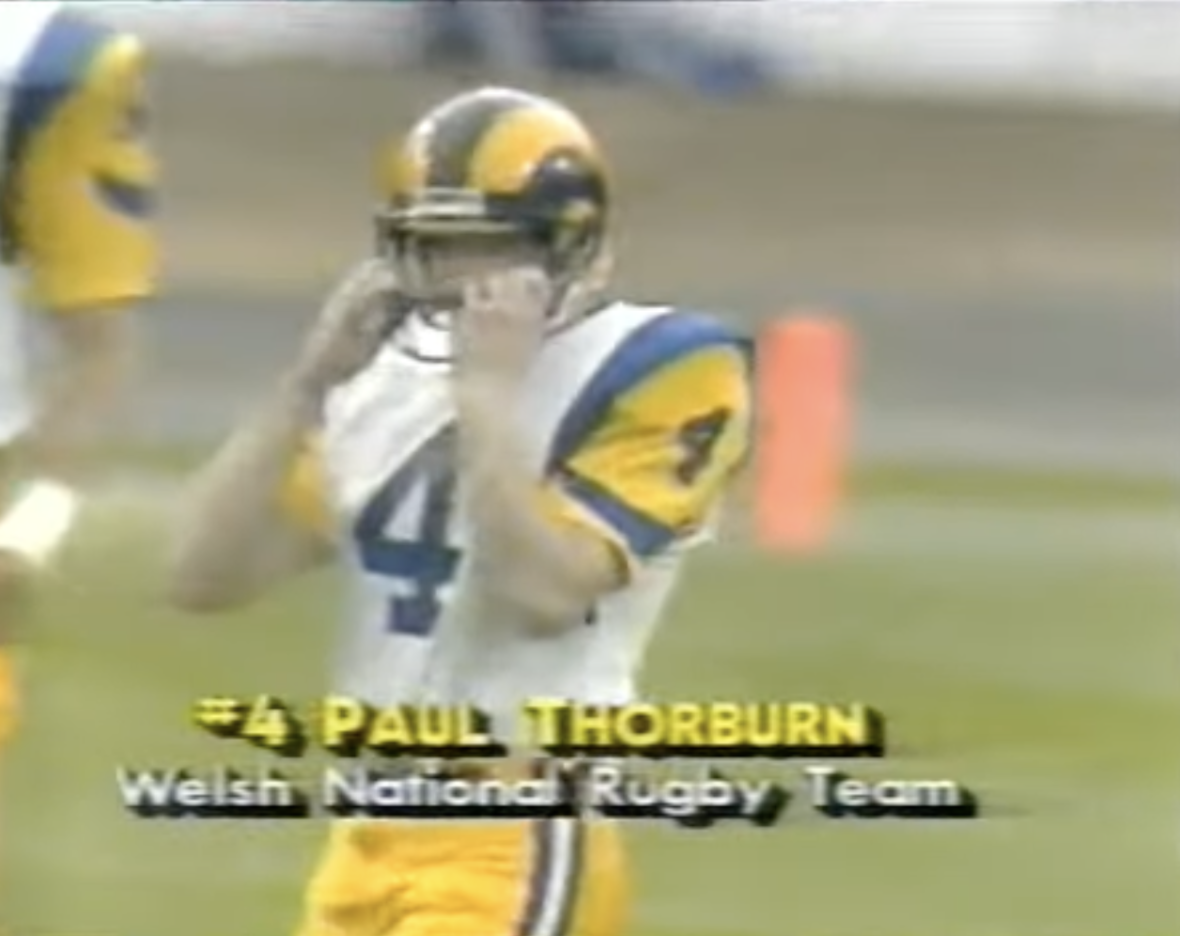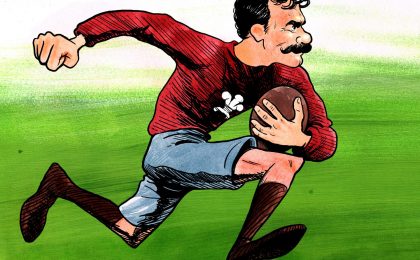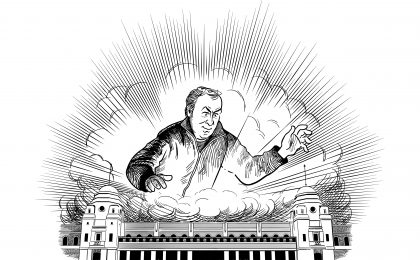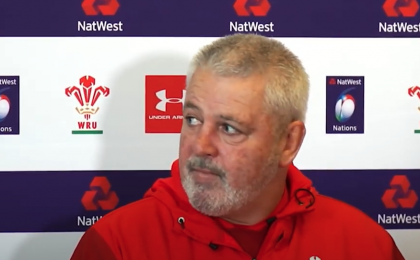In the dull grey of Britain in the 1980s, the NFL was first beamed into UK homes by the then radically innovative Channel 4. With only four television stations available to Brits at the time, it meant pretty much everyone in the UK was exposed to American football to some degree.

The sport was like something from another planet and the pads, helmets, brash celebrations and cheerleaders captivated and horrified viewers in equal measure. Whatever side of the fence our British readers may have fallen on (this writer was among the captivated), there is no doubt the arrival of American football on Channel 4 changed sporting and popular culture in the country. Today, with the sport so loved in the UK, the NFL stages several league matches a season in London.
In 1987 the Los Angeles Rams faced off with the Denver Broncos in a preseason game at Wembley. While it was a ‘friendly’ in local parlance, it was marketed as the ‘American Bowl’ to give it a bit more bite. It was only the second time that NFL teams had met in London (1986 had seen the Chicago Bears face the Dallas Cowboys). 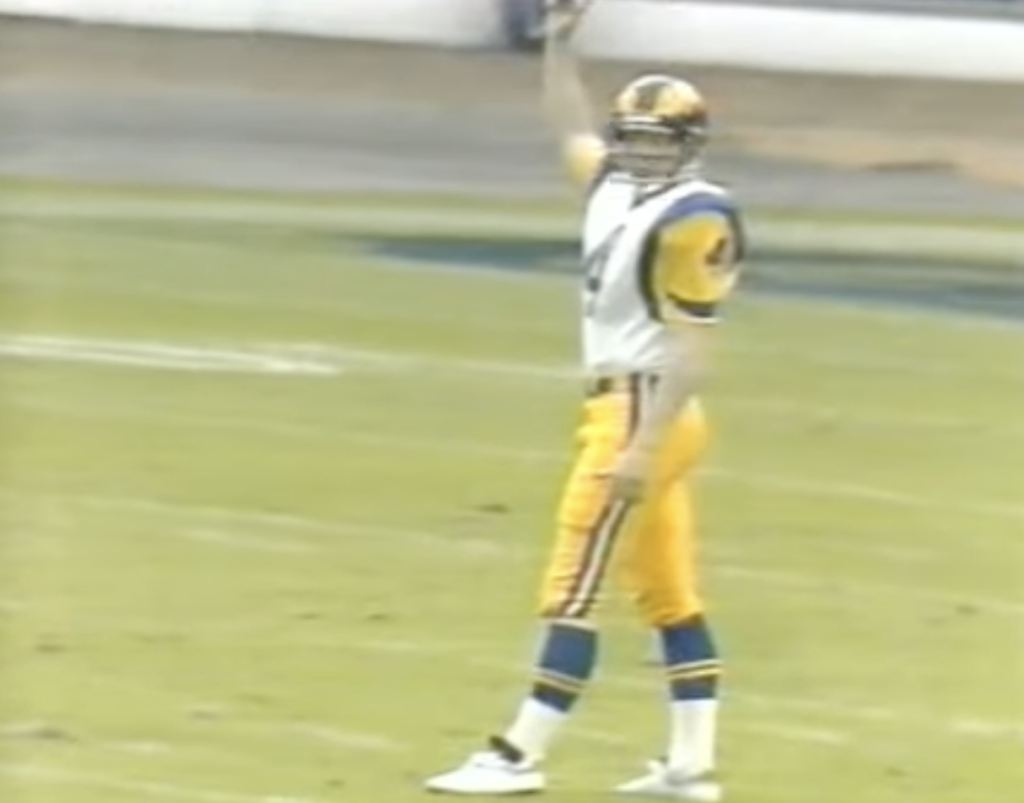
The 1987 match contains a little bit of Welsh rugby history: Wales and Neath full-back Paul Thorburn was invited to suit up and play. The move was both a publicity stunt (Thorburn’s inclusion would generate local press and fan interest) and part scouting process. Had the Neath man impressed, there was the potential of him having a serious chance of further tryouts for the Rams.
But sadly for Thorburn, his initial kickoff was so unimpressive he played no further part in the match at all. As the highlights here show (the clips starts at Thorburn’s debut moment), the commentators, NBC’s Merlin Olsen and Dick Enberg, were less than impressed with his efforts. His kick was as poor as their attempts to say his name. They do not hold back in their disbelief at his efforts. In fact, they literally laugh at it and of the concept of him earning big bucks in the NFL.
While the video is of poor quality and the kick is barely visible (the ball only travelled to the Denver 22-yard line), the audio is crystal clear and well worth a listen.
Adding to the almost farcical nature of events, Olsen and Dick refer to him as ‘Thornburn’, rather than Thorburn. Indeed, when the Welshman arrived in the dressing room ahead of the match he found his shirt displayed the name ‘THURBURN’. Embarrassed team officials quickly adjusted the rogue ‘U’ into an ‘O’.
Thorburn was the owner of a powerful boot and his kick against Scotland in 1986 is still considered the longest-successful penalty in Test rugby history. Interestingly, in his 1992 autobiography ‘Kicked Into Touch’, Thorburn states that he believes he kicked a longer goal that day. Which, if true, is fascinating because nobody else remembers it. Perhaps Twitter legend @ApsmRugby can dig it out?
He was also a respected ‘clutch’ kicker, to appropriately use an American term. His last-minute conversion to clinch third place for Wales in 1987 is Thorburn’s most famous late kick. But he also hit a late penalty in Dublin in 1988 to secure the first Welsh Triple Crown since 1979 (and last until 2005). Wales had much to be grateful to for Thorburn’s right boot.
In his autobiography, Thorburn relates how incredulous his father was when the offer to play for the Rams at Wembley as a specialist kicker comes through. His response on being told was apparently, “What do you mean, you just kick the ball? They must want you for something else?”
To this day, the concept of specialist kickers and punters (and they are two different positions) baffles non-NFL fans. In 1987 this wonderment was even greater as so little was known about the American code of football.
After being sounded out by the Rams, Thorburn checked with the Welsh Rugby Union to ensure that his amateur status would not be infringed if he took American coin by playing for the Rams. He was quickly given clearance. After all, he wasn’t getting paid to play, God, forbid, rugby league.
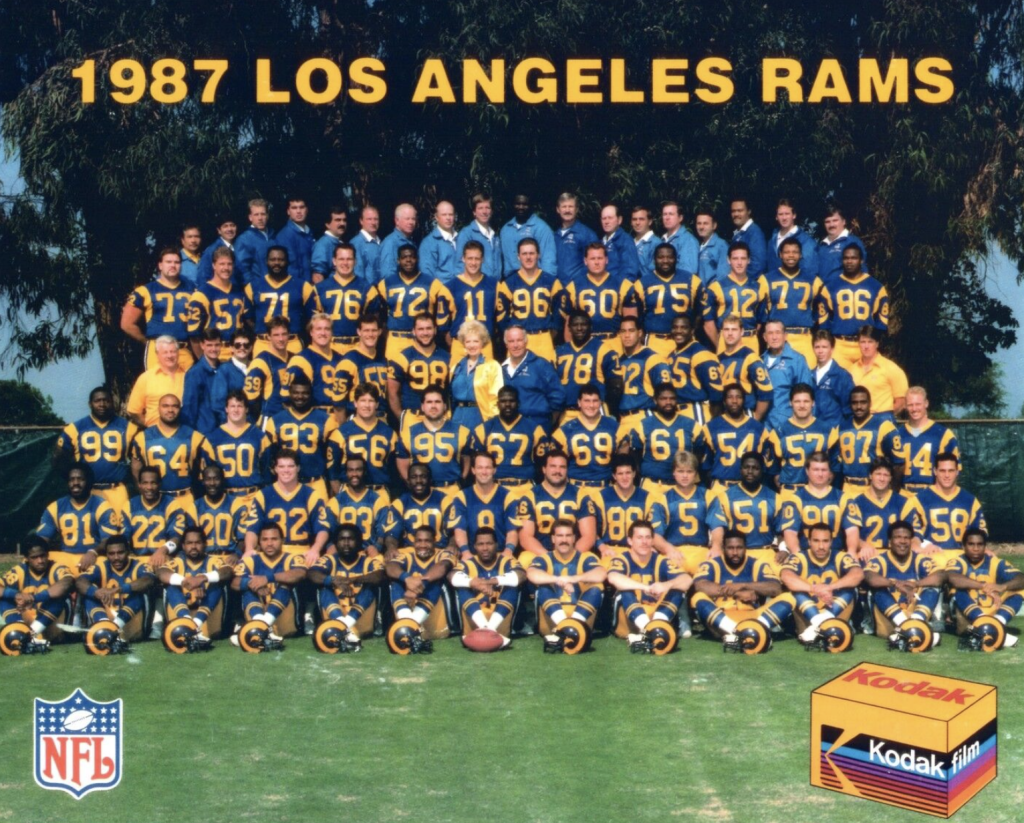
Practice makes…mediocrity
The Rams sent Thorburn twelve balls to practise with ahead of the match. He was also sent a kicking tee. Younger readers will notice in the above clip that Thorburn’s world-record kick against Scotland was made directly from a divot in the ground. Kicking tees were not permitted back then and while the likes of Grant Fox would soon make the use of sand to build a tee popular, Thorburn would have had no experience of kicking from anything but the honest and pure soil of the land.
Before the match, Thorburn met his new LA teammates for a training session at Crystal Palace. Ahead of the session he had to sign a contract. While technically worth $70,000, it was effectively a form of insurance in the case of injury. However, if Thorburn had impressed and showed a willingness to play more, it seems the Rams would have then been able to consider him for a roster spot. This was something the Welshman admits was of some interest.
Thorburn expands on what happened at Crystal Palace in his book: “Gradually the kicking coach, one of several specialist people on the coaching team, increased the distances of the kicks. It was going rather well, I thought, and then we did some punts. The aim was to kick the ball downfield some sixty yards, allowing the ball to stay in the air for four seconds. So far, so good.
“On the second snap the ball was fired back and I noticed this rather large frame coming towards me. It was enough to put me off completely, since I knew he didn’t want to ask me about the British weather. The kick was sliced and the ball hit a blocker’s helmet. It was greeted with some mirth.”
Despite the iffy kick by Thorburn in the match, the Rams still won 28-27. You can read about the game here. Unfortunately for Thorburn, his Neath teammates saw his performance from their hotel in Florida where the club were on tour. One imagines it took a while to live down. Still, what a great experience for Thorburn and a fascinating footnote in Welsh rugby history.
A Welsh NFL ‘legacy’
While Thorburn may have been the first Welsh rugby player to play in NFL colours, he was only the second famous Welshman to suit up. Comedian and folk singer Max Boyce beat him by a few years.

